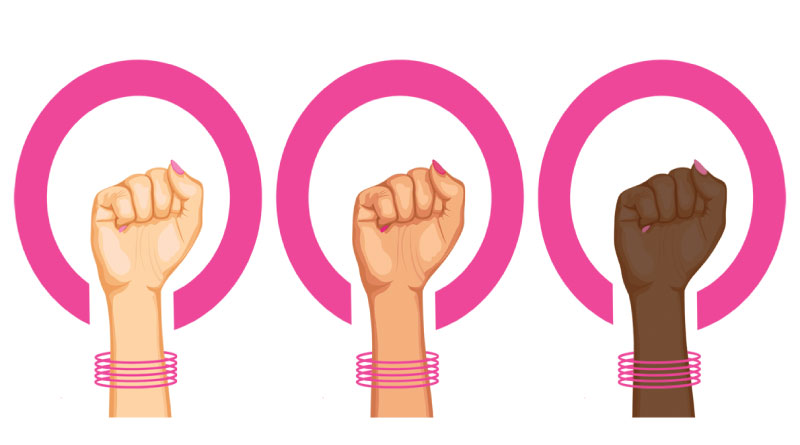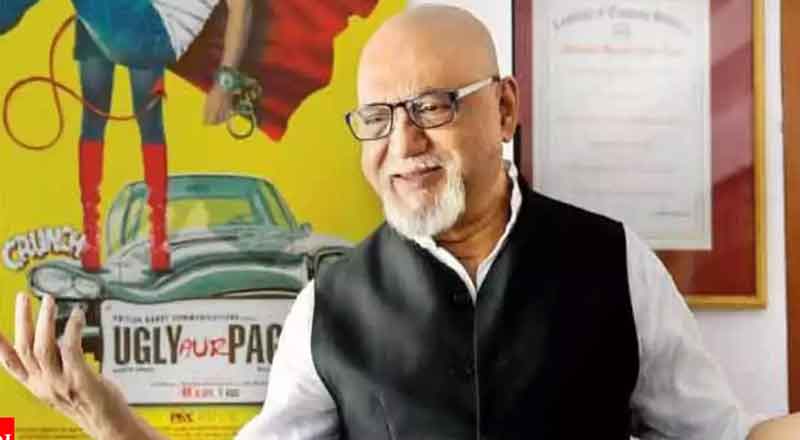Throughout ages womenfolk have been at the receiving end of discrimination at the hands of men, whether it is at home or in the society. Despite women empowerment as a subject starting to gain prominence in the last few decades, the plight of women in many countries continue to be a topic of concern and the wave of change that has started in the late 20th century for emancipation of women has not reached them yet –
Women empowerment that is a universal phenomenon, refers to the creation of an environment for women where they can make decisions of their own for their personal benefits as well as for the society. It means emancipation of women from the vicious grips of social, economical, political, caste and gender-based discrimination. It means granting women the freedom to make life choices. Women empowerment will directly lead to the overall development of the society. It can also lead to the end of many ills that exist in the society – domestic violence, treating women just as an object without understanding their worth and so on.
“Woman empowerment to me is the ability to have the right to choose and decide what one wants to do in life. Not having to take a decision by being constrained by one’s gender is true equality and empowerment. It is good that there is lot of focus on gender equality at work, home and society. Real empowerment of women happens by improving their social, economic, political and legal strength. It involves building a society, an environment where women can breathe freely and has equal say both at home and the workplace. We must work towards creating a place where there is no fear of oppression, discrimination and suppression,” views Ritu Chhabria, Director, Finolex Industries Ltd, and Founder Managing Trustee Mukul Madhav Foundation.
At Mukul Madhav Foundation, Finolex Industries has been working for women empowerment in Ratnagiri. The company has set up tailoring, computer, sewing, and embroidery classes. Women get to master a skill and they make and sell products. This leads to their financial independence and builds their confidence.
“When you are leader or a mentor, your team learns more by your deeds than your words. I have more women working in my organization than men. All are treated equal and their skills and knowledge is what matters more to me. I always see to that women around me are happy. They have the confidence that I am with them in case of crisis. I encourage my women staff to keep themselves upgraded with technology and also in their respective field of work. Knowledge is strength and that will take them a long way,” says Ritu.
According to Smita Apsingekar, Chief Operating Officer – Yitsol Technology, though the term Women Empowerment refers to strengthening the social, economic and educational powers of women, she feels that GENDER EQUALITY is the real meaning and the only way to achieve it. “Woman empowerment demand equal Social Rights, Political Rights, Economic stability, judicial strength and all other rights for the woman,” she says. “There should be no discrimination between men and woman at any phase of life. It is a demand of time that the society should create an environment, for women where they can make decisions on their own for their personal benefits, family and as well as for the society. They should have complete control of their life, both within and outside of their home and workplace.”
She further continues by sharing a beautiful quote by Swami Vivekananda – ‘There is no chance for the welfare of the world unless the condition of women is improved, It is not possible for a bird to fly on only one wing.’ “It’s very important for women to respect other women as well,” she says. “When you treat each other with respect and as equals — man or woman — it leads to a better and more evolved society and community. Women are powerful enough to do anything. We can give birth, influence a nation, and ultimately change the world. But it seems like the hardest thing for women to do is have healthy relationships with other women. Issues arrive amongst women because of competition, envy, and judgmental attitudes. Once a woman starts respecting another woman, the society automatically will follow the footsteps. As a woman I will say, for us it’s all about self-reliance, liberation, sense of pride and courage to fight social injustice.”
“Women Empowerment has become an important issue, world over and I wholeheartedly support every woman that makes the efforts to rise and construct her life according to her dreams,” observes Shobana Mahansaria, Co-founder – Dolphin POD. “For me, personally, being empowered means being independent. Being confident to live my life and run as many businesses as I can handle and to be an equal amongst my peers, socially and professionally. We cannot and should not expect anyone to give us leeway because of gender. Instead we should focus on strengthening ourselves as individuals. We don’t have to prove we are better than men. When we work hard, face our challenges and overcome our obstacles with determination and grit, we are equals. It’s a state of mind, not a state of things.”
Sunita Sahney, Founder Director – Finova Capital asserts that a woman has everything she needs and doesn’t require any extra, special or better treatment. However, she feels that what really needs to be treated is the environment around her. “I think women empowerment is about creating an environment that is more inclusive and empowering, enabling women to take decisions on their own, along with 0% tolerant policy to any gender-based discrimination. Women should be able to live their lives with a sense of self-worth, respect and dignity and have equal rights for social and economic justice, and companies must ensure such an environment,” she says.
“We are operating in a space that has for long been dominated by the male counterparts. However, women are increasingly claiming their share in the financial space as well, including acing the professional studies and otherwise. We practice an open culture of inclusivity in Finova Capital. Furthermore, our efforts for women empowerment are not limited only to the work space scenario and transcends to different women we encounter in everyday life, belonging to underprivileged sections of the society. This implies to creating a safe and professional environment for domestic helps, giving them paid offs, encouraging them or their daughters to pursue education, amongst other endeavours,” Sunita says.
“Empowerment is all about an individual and changes in his/her cognitive processes,” says Smitha B S, Lead Community Outreach – Careworks Foundation. “Women empowerment refers to uplifting the political, social, educational and economic strength of women. Every woman should be able to think and take independent decisions in every walk of her life. I believe, this is more about personal cognition and awareness from which other changes in society follow suit.”
“Despite the advancements we have made in being inclusive and finding parity-women empowerment still has long ways to go. As a senior leader in the organization my touch-points are to find avenues to mentor women to take on leadership roles, help them manage crisis and find a work-life balance. I feel work-life balance often plays a key role in the career growth of women. I also actively support women teachers in the various school development initiatives to upskill themselves and become better role models,” believes Smitha.
“Empowerment of women means developing them as more aware individuals, who are politically active, economically productive and independent and are able to make intelligent discussion in matters that affect them. Women empowerment as a concept was introduced at the International women Conference in 1985 at Nairobi, which defined it as redistribution of social power,” says Fahmida Ozair, CEO – SoftAge.
“I have been a strong advocate of women empowerment and gender equality. For me it means 2 things – a person being able to shed off helplessness and able to take decision of her life on her own. Women are as diverse as men are but sadly they are never seen as an individual. They are always seen in context of some relationship – a mother, sister, wife or daughter. We need to start seeing women as human beings who have as much strength and as much weakness as any living beings can have and accepting the woman in the size and form they are. Also, women need to be accepting themselves as the way they are rather than chasing a vision which is not their own,” comments Dr. Shubhangi Sharma, Executive Director – IPLM, NASSCOM Foundation.
She further continues, “Most of the time womens’ lives are entangled in the struggles in being herself and being able to really be life the society wants her to be. That struggle makes a woman a much distorted personality. So for women to understand herself and be comfortable in the skills that she possess is what I think is women empowerment.”
“Talking about Women Empowerment, gender equality, better treatment and raising their quality of life hold good. Having said this, just by ensuring these three would not bring out women empowerment in totality. Women need to be given enough freedom, which would free them from all social, moral and religious limitations. Further they need to be provided with the right environment through which they can identify opportunities to grow, develop and take decisions for their own good as well as for the upliftment of the society in which they are a part of. This could be at their workplace, home, or any other place, where they have an opportunity to make a positive impact,” says Achal Khanna, CEO – SHRM India.
In the opinion of Monica Malhotra Kandhari, MD – MBD Group, women empowerment refers to ‘women equality with men’, whether that relates to better treatment, raising quality of life or treating them equal at work/home/society. “Today, the society in general has evolved to be more equal, one that opens up a level playing field for everyone to partake from irrespective of gender, caste, or creed. Whether men or women, we all are complete in ourselves; skill, competence, and hard work are just about all that is needed for a man/woman to really succeed in any given field. I would suggest that don’t get into man-woman world. We as woman should constantly evoke and not focus on being better than the other gender.”
Challenges to Women Empowerment in India…
There are several challenges that are plaguing the issues of women’s right in India. In most of the contexts, women empowerment is essentially rooted to the economic and social structure of a country and gets manifested in various forms. There are various issues which pose myriads of challenges towards the vision of Women Empowerment. Targeting some of the issues like lack of education, poverty, inequality at workplace & home will directly benefit the empowerment of women.
“One major challenge is the lack of education. It is not just literacy that I am referring to, but education should involve teaching essential values in gender equality from childhood,” comments Ritu.
The Indian family structure and the discrimination that children see at home when they are young and impressionable stays with them and sets the base for their behaviour towards the opposite gender when they grow up. “The society is biased and favours the male child, be it for education, nutrition or other growth opportunities. Girls are forced into child marriage and they seldom get an opportunity for self-growth after that. Having said that, women empowerment has become quiet the buzzword and the movement has continued to gain strong support. I hope this brings steady changes across the country,” opines Ritu.
“Even though by law, we are all equals, it is age old societal traditions and taboos that prevent women from stepping out into the arena, fully armed with their intelligence and knowledge. However, I feel, as a country that’s bursting with new ideas and thoughts, we are stepping over that fragile line of gender bias and contributing to every field of progress. In present times, I see a lot of great achievements by Indian women on global platforms and I’m sure like me, it gives every woman impetus and pride in her field of work. To achieve, you have to be dedicated. Whether man or woman,” contends Shobana.
“The foremost challenge in battling gender parity is the general mentality of people in India or otherwise. We as Indians, right from our childhood, are conditioned to live our day to day lives as per the patriarchal norms; not just men but women as well. Ensuing that there are still so many women across the country that endorse and impose patriarchy and this is the biggest challenge. Apart from that there are very few women who come out of their closet to talk about any injustice or atrocities they have been through. I think these are the primary challenges that conjure newer and additional challenges,” believes Sunita.
Being equal to their male counterparts is still a far cry for Indian women, is what Smitha of Careworks believes. “Take for example in education, where exists a huge gap between women and men. Women are facing challenges to reach higher positions as professionals due to the existing gender bias in higher education and specialized professional training courses. Similarly poverty is still one of the greatest threats to women empowerment. The health and safety concerns of women are of paramount importance. Even on a professional front inequality is prevalent giving rise to difference in payscale between men and women of similar calibre. To sum it, gender bias in terms of different education provided to a son or a daughter at home is another factor that can be seen as a letdown to women empowerment in India.”
The Constitution of India not only grants equality to women, but also empowers the state to adopt measures of positive discrimination in favour of women. There has been a lot of improvement in the position of women, but their true empowerment is still awaited.
“Women in India now participate in areas such as education, sports, politics, media, art and culture, service sector and science and technology, but due to the deep- rooted patriarchal mentality in the Indian society, women are still victimized, humiliated, tortured and exploited and their opinions are not considered worthy enough. Even after almost seven decades of Independence, women are still subjected to discrimination in the social, economic and educational field. There is awareness but total acceptance may take some more time,” views Fahmida.
“You can tell the condition of a nation by looking at the status of its women”
– Pt. Jawaharlal Nehru
It is an irony that in a country like India, where goddesses Kali and Durga are worshipped as an epitome of Shakti (Power), women are still looked down as subordinates to men. The need of the hour is education and awareness that needs to be imparted for every individual to have a broader perspective on this issue. This is what the world needs, as this is not just a problem specific to India, but it is a global problem that needs to be looked at a global level.
And who better than us (women) could lead this change!
Samrita Baruah
samrita@varindia.com





